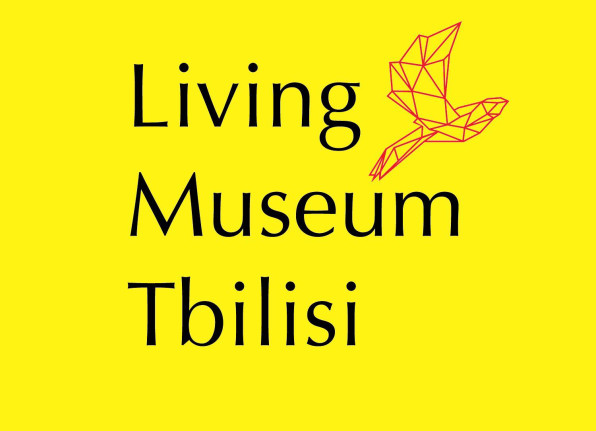 Menu
Menu
-
Experiences
-
Experiences
-
Posters
Menu
-
Categories
-
Places
Menu
- Galleries LICHT Gallery ExpoGeorgia IArt Gallery Dimitri Shevardnadze National Gallery Tbilisi Digital Space
- City sites Mtatsminda Park Mziuri Park Vake Park April 9 (Alexander) garden Shota Rustaveli Avenue
- Children's studios Creative center Art BOOM Tamashobana Happy Kids Art Club Ferdinand farm GinGer
- Ecclesiastical institutions Tbilisi Yoga Loft TBILISI YOGA VILLA Transcendental Meditation Georgia Lumos Yoga Cave
- Event spaces KERA Space Gardenia Shevardnadze Orbeliani Bazaar Fabrika bibliotheque_tbilisi
- Cafe-restaurants Blue Fox Restaurant Tsiskvili Utskho 8000 Vintages Wasserstrasse
- Cinemas Amirani Cinema Cavea City Mall Saburtalo Cavea Grand Mall Cavea Tbilisi Mall Cavea East Point Cavea Galleria
- Concert halls Kakhidze Music Center Monohall MONUMENT Tbilisi Concert Hall Tbilisi Sports Palace
- Lecture halls Terminal Auditoria Colab TBC Concept PRANA
- Museums Georgian Museum of Fine Arts Georgian National Museum Experimentorium Holoseum Zurab Tsereteli Museum of Modern Art
- Nightclubs/bars Love Bar Underwheel club Dedaena Bar KHIDI MTKVARZE
- Educational institutions Institut Français de Géorgie Beka's School BTU The Thinking Academy Japanese Language & Culture Center
- Public organizations Georgian Historic Vehicles Association Georgian-Ukrainian platform (Ukrainian House) The Samaritan Association of Georgia Blood Bank
- Hotels Tbilisi Hills & Residence Pullman Tbilisi Axis Towers Stamba Hotel Sheraton Grand Tbilisi Metechi Palace Holiday Inn Tbilisi
- Sports grounds Dinamo Arena Mikheil Meskhi Stadium Hippodrome Lisi Lake Lilo Arena Paichadze Stadium
- Theaters Nodar Dumbadze Theater (ნოდარ დუმბაძის თეატრი) Tbilisi Circus Royal District Theatre Griboedov Theatre Gabriadze Theatre
-
Categories
-
Posters
-
Categories
-
Places
Menu
- Galleries LICHT Gallery ExpoGeorgia IArt Gallery Dimitri Shevardnadze National Gallery Tbilisi Digital Space
- City sites Mtatsminda Park Mziuri Park Vake Park April 9 (Alexander) garden Shota Rustaveli Avenue
- Children's studios Creative center Art BOOM Tamashobana Happy Kids Art Club Ferdinand farm GinGer
- Ecclesiastical institutions Tbilisi Yoga Loft TBILISI YOGA VILLA Transcendental Meditation Georgia Lumos Yoga Cave
- Event spaces KERA Space Gardenia Shevardnadze Orbeliani Bazaar Fabrika bibliotheque_tbilisi
- Cafe-restaurants Blue Fox Restaurant Tsiskvili Utskho 8000 Vintages Wasserstrasse
- Cinemas Amirani Cinema Cavea City Mall Saburtalo Cavea Grand Mall Cavea Tbilisi Mall Cavea East Point Cavea Galleria
- Concert halls Kakhidze Music Center Monohall MONUMENT Tbilisi Concert Hall Tbilisi Sports Palace
- Lecture halls Terminal Auditoria Colab TBC Concept PRANA
- Museums Georgian Museum of Fine Arts Georgian National Museum Experimentorium Holoseum Zurab Tsereteli Museum of Modern Art
- Nightclubs/bars Love Bar Underwheel club Dedaena Bar KHIDI MTKVARZE
- Educational institutions Institut Français de Géorgie Beka's School BTU The Thinking Academy Japanese Language & Culture Center
- Public organizations Georgian Historic Vehicles Association Georgian-Ukrainian platform (Ukrainian House) The Samaritan Association of Georgia Blood Bank
- Hotels Tbilisi Hills & Residence Pullman Tbilisi Axis Towers Stamba Hotel Sheraton Grand Tbilisi Metechi Palace Holiday Inn Tbilisi
- Sports grounds Dinamo Arena Mikheil Meskhi Stadium Hippodrome Lisi Lake Lilo Arena Paichadze Stadium
- Theaters Nodar Dumbadze Theater (ნოდარ დუმბაძის თეატრი) Tbilisi Circus Royal District Theatre Griboedov Theatre Gabriadze Theatre
Posters
-
Categories
Event already passed

Obsessive-Compulsive Personality Disorder — The Tireless Attempt to Disappear
Obsessive-Compulsive Personality Disorder — The Tireless Attempt to Disappear
6 Constitution St., Tbilisi
Ticket price
from80 ₾
Description
At the Living Museum Tbilisi, cognitive-behavioral therapist Ana Ghvinianidze (accredited by the European Society for Behavioural and Cognitive Therapies) will deliver a lecture on the topic:
“Obsessive-Compulsive Personality Disorder — The Tireless Attempt to Disappear.”
-
What is Obsessive-Compulsive Personality Disorder (OCPD)?
-
Which factors contribute to its development?
-
How do the behaviors of people with OCPD affect those around them?
-
What do people with OCPD need in order to make their symptoms less disruptive to daily life?
-
How can one maintain relationships with loved ones in such conditions?
Typical thoughts and beliefs of OCPD:
-
“Striving for perfection is the way to preserve love.”
-
“To keep my caregiver’s love, I must create rules that protect me from rejection and abandonment.”
-
“I must hide behind the image of an orderly, calm, and unshakable person so that I won’t be left alone.”
Obsessive-Compulsive Personality Disorder (OCPD / Anankastic Personality Disorder) is a cluster of traits and coping strategies: rigid self- and other-control through strict, idiosyncratic rules, a strong drive for supervision, and insistence on order, discipline, and conscientiousness. This leaves little room for ease, spontaneity, or lightness — both in the life of the person with OCPD and in the lives of those around them.
Facts and data:
-
According to U.S. statistics, about 1 in 100 people has OCPD.
-
Men are diagnosed twice as often as women.
-
Many people display OCPD traits but do not meet full diagnostic criteria.
-
Authoritarian, obedience-based upbringing can contribute to its development.
-
Often, people only consider change after facing loss of an important relationship or job.
Registration: form
Fee: 80 GEL
Bank details:
TBC Bank
IBAN: GE36TB7954336020100008
Recipient: Living Museum Tbilisi
Purpose: please indicate the participant’s full name.
Date & Time: September 15, 20:00
Duration: 90 minutes
Address: 59 Ninoshvili St. (opposite Café Honore, parking area)
For more information: 599 40 70 01
Photos and videos






